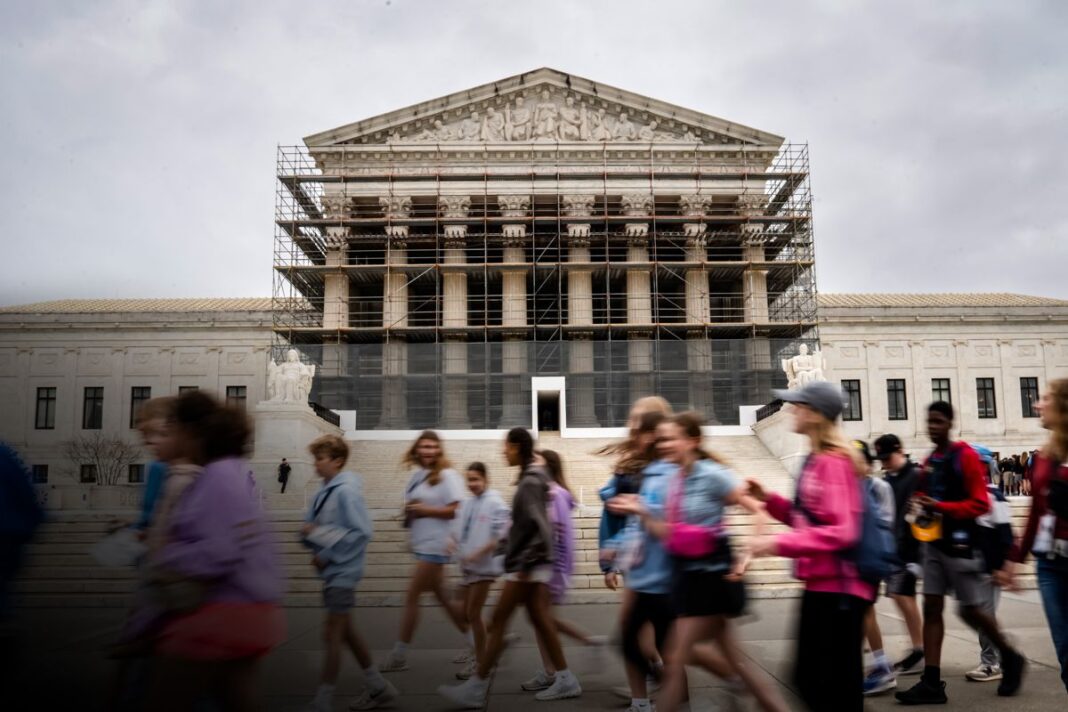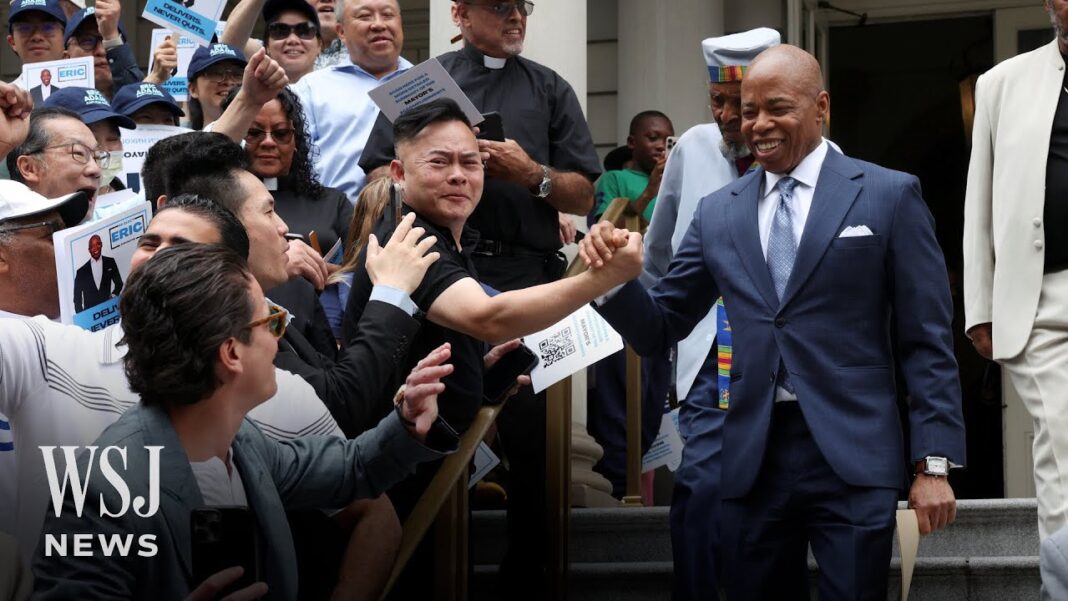The case centers on eight men the DHS said are ‘criminal aliens’ who are currently being detained at a U.S. military facility in Djibouti.
The Supreme Court issued an order late on July 3 that cleared the way for the federal government to deport illegal immigrants to third countries to which they have no prior connection.
The case centers on eight men the Department of Homeland Security (DHS) calls “criminal aliens” who are currently being detained at a U.S. military facility in Djibouti.
The government is temporarily housing the men—who were already in the process of being removed to South Sudan—in Djibouti to comply with an order by Judge Brian Murphy of the U.S. District Court for the District of Massachusetts.
The Supreme Court’s new order in DHS v. D.V.D. makes it clear that the high court’s June 23 order allowing the deportations supersedes an order Murphy issued later the same day blocking the removals.
In his June 23 order, Murphy took the position that his previous injunction from April 18 halting the removals remained in effect.
In the Supreme Court’s 6–3 ruling on June 23, three justices—Sonia Sotomayor, Elena Kagan, and Ketanji Brown Jackson—dissented.
Sotomayor wrote at that time that the government has wrongfully deported plaintiffs to South Sudan, “a nation the State Department considers too unsafe for all but its most critical personnel.”
DHS told the Supreme Court on June 24 that Murphy’s injunction blocking the deportations was “a lawless act of defiance” that urgently needed to be overturned. The department asked the high court to clarify whether its June 23 order overruled Murphy’s June 23 order, as well as the underlying injunction the judge issued on April 18.
The Supreme Court said in its new unsigned order on July 3 that its June 23 order “rendered” Murphy’s injunction “unenforceable.”
Kagan filed an opinion concurring with the new order.
“I voted to deny the Government’s previous stay application in this case, and I continue to believe that this Court should not have stayed the District Court’s April 18 order enjoining the Government from deporting non-citizens to third countries without notice or a meaningful opportunity to be heard.”
“But a majority of this Court saw things differently, and I do not see how a district court can compel compliance with an order that this Court has stayed,” Kagan wrote.








